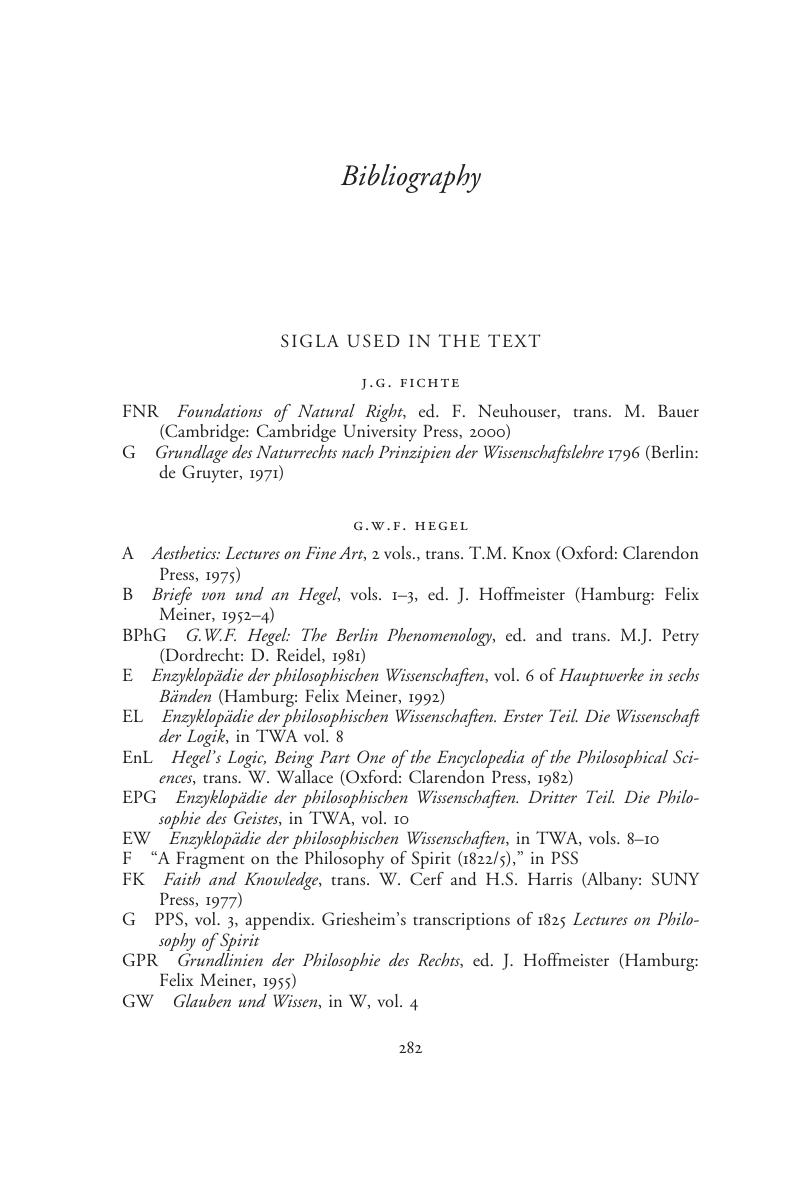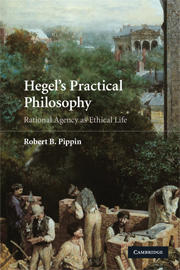Bibliography
Published online by Cambridge University Press: 05 June 2012
Summary

- Type
- Chapter
- Information
- Hegel's Practical PhilosophyRational Agency as Ethical Life, pp. 282 - 300Publisher: Cambridge University PressPrint publication year: 2008



